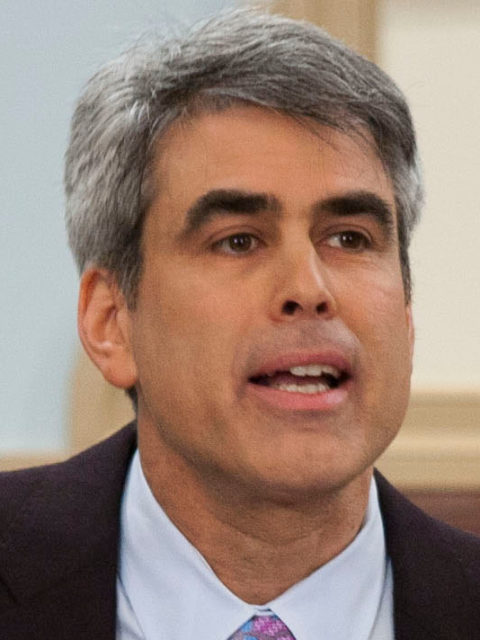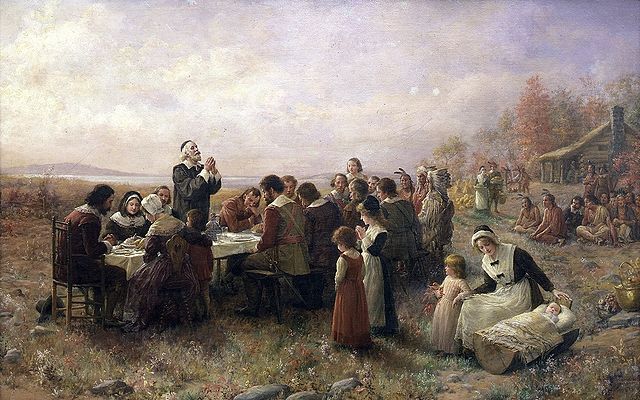Have you ever considered giving thanks to be an act of cultural rebellion? Well, it can be, and we need to rise up in a rebellion of gratitude now more than ever.
We live in a strange moment in history, where casting yourself as a victim confers a sense of righteousness. Our culture increasingly incentivizes people to view themselves as fragile, aggrieved victims in need of protection and “safe spaces.”

Professor Jonathan Haidt observed that this new system of morality encourages people “to respond to even the slightest unintentional offense. Tactics sometimes involve building a case for social justice action by documenting, exaggerating, or even falsifying offenses.” Watch this incredible video of Yale students confronting a professor to see what this looks like.(Language Warning).
This has led to an explosion of so-called “microaggressions.” The system works by continually inventing new forms of perceived injustice, new reasons to take offense, and new ways to claim victim status.
What was the grievance of these Yale students? The professor, Nicholas Christakis, had the audacity to write that students were old enough to decide what kind of Halloween costumes to wear without school administrators offering guidelines. This seemingly obvious, common-sense statement “triggered” the incredible vitriol and victimization you see in the video. Ultimately, the reaction led to the resignation of the professor and his wife.
I’ve been reflecting quite a bit on this new moral climate, finding it puzzling and alarming. It has several characteristics I hope to unpack in future posts. Here’s an observation very relevant on Thanksgiving Day: this system lacks any basis for gratitude.
To understand why, you have to first recognize that the moral system rests on Marxist assumptions. It sees a world divided into two groups: oppressors and oppressed. Oppressed victims are the “good guys.” They are superior and enlightened because they have discerned the many subtle ways that oppressors maintain power. Oppressors are bad people who have a vested interest in keeping oppressive systems in place, either intentionally or unintentionally. In this way, victimhood confers a sense of moral superiority; it incentivizes people to constantly look for subtle “injustices” or offenses. This is the exact opposite of a spirit of gratitude. Indeed, gratitude is a threat the entire moral system of victimhood; being thankful instead of offended would undermine the entire edifice.

You often see this new morality play itself out in discussions of American history. Those trapped within a culture of victimhood fixate on America’s faults and shortcomings. They speak of systemic injustice, or institutional racism. They focus on slavery, Jim Crow, the oppression of Native Americans, or police brutality. At the same time, they are seemingly unable or unwilling to acknowledge any good from our history to be thankful for.
The new moral system also rests on the secular doctrine of personal autonomy. If there is no God, we are the supreme authority. We are little gods who can define reality to suit our whims and desires. Here again, we find no basis for gratitude. After all, the mere act of saying “thank you” is an acknowledgement that you are not God—that you are dependent—that you need help.
How different all this is from a biblical worldview, in which gratitude is a central virtue. We are continually instructed in the Scripture to “give thanks to the Lord, for he is good, for his steadfast love endures forever!” Psalm 107:1.
We are to: “Let the peace of Christ rule in your hearts, to which indeed you were called in one body. And be thankful. Let the word of Christ dwell in you richly, teaching and admonishing one another in all wisdom, singing psalms and hymns and spiritual songs, with thankfulness in your hearts to God. And whatever you do, in word or deed, do everything in the name of the Lord Jesus, giving thanks to God the Father through him” Colossians 3:15-17.
Again: “[Give] thanks always and for everything to God the Father in the name of our Lord Jesus Christ” Ephesians 5:21.
We are even to “give thanks in all circumstances; for this is the will of God in Christ Jesus for you” 1 Thessalonians 5:18.
I could go on, but you get the idea. As fallen, self-centered creatures, we constantly need to be reminded that we are not God—we are not the center of the universe. Everything is not about us. Rather, we are created, contingent beings. God is the Supreme Being: “from Him and through Him and to Him are all things” (Romans 11:36). Indeed, everything we have is a gift from God. Even your next breath is a gift. You don’t deserve it, you didn’t earn it, all you can do is recognize it and say “thank you.”
So this year, as you celebrate Thanksgiving, see it as an opportunity for a little rebellion against the spirit of the age. Flannery O’Conner encouraged us to “push back against the age as hard as it pushes against you.” One simple, yet powerful way to do that is by giving thanks.
Thank God for your life and your salvation. Thank Him for your family, friends, coworkers, and teachers. Thank Him for your church. Thank Him for the people who came before you, who sacrificed so much to give you this wonderful system of government and the freedoms we often take for granted.
Thank Him privately and publicly. Thank God around the thanksgiving table and in your church. Tell your friends, coworkers, pastors, police, veterans and active duty military how much you appreciate them, and how thankful you are for them.
The very act of thanking God and others is a powerful antidote to the toxic spirit of victimology and personal autonomy. Perhaps you know someone who is caught up in the spirit of the age. You can see the effects in their lives—the bitterness and anger. Here’s how you can help them. Invite them to write down all the things they have to be thankful for. They may resist, but challenge them to think of just one thing, and then another, and then watch as that sense of grievance begins to melt away, replaced by joy.
After all, joy and thankfulness are intrinsically linked. God made it that way. God wants our lives to be filled with joy, and gratitude is the pathway for our personal healing, and the healing of our culture.
- Scott Allen







2 Comments
cam
November 24, 2016 - 9:40 amWhat an excellent post of an issue than many of us more or less already understand. I look forward to the future “unpacking” that will add more substance to what we already believe.
admin
November 28, 2016 - 9:52 amThanks, Cam. We always appreciate hearing that one of our posts has been helpful.
Gary Brumbelow